Rashomon (1950)
“It’s human to lie. Most of the time we can’t even be honest with ourselves.”
|
Synopsis: |
|
Genres, Themes, Actors, and Directors:
Response to Peary’s Review: I disagree with Peary on nearly all the above points. The film’s central premise — that truth is subjective enough that we all approach the telling of a tale with our unique biases and subconscious desires firmly in play — is universal, and so masterfully portrayed by Kurosawa that it serves as an enduring primer for how to relate such a story in cinematic terms. To that end, Peary does concede that “it shouldn’t be forgotten that Kurosawa broke the rules of cinema storytelling”; along with many other critics (see links below), he notes that “it is less important that any four people will tell four different versions of a story than that any filmmaker is capable of taking a story and visualizing it in an infinite number of equally persuasive, audience-manipulative ways”. With regards to the film’s “bookends”, they come across as simply a convenient and effective narrative device; and the inclusion of “Bolero” (actually, a variation thereof) in the soundtrack doesn’t strike me as particularly jarring. Finally, in terms of the film’s central performances, I’m actually less a fan of Mifune’s primal bandit (as noted in Time Out London’s review, he “veers on the hammy side of earthy”) than I am of both Kyo as the samurai’s wife (watch how her expressions and overall demeanor shift from vignette to vignette), and Mori as the samurai himself (though he’s not given much to do, he effectively projects an unnerving, steely reserve). Even more memorable than the actors, however, are Kurosawa’s stunning, haunting visuals — as usual, every frame of his story is composed with craft and care. Redeeming Qualities and Moments: Must See? Categories
(Listed in 1001 Movies You Must See Before You Die) Links: |
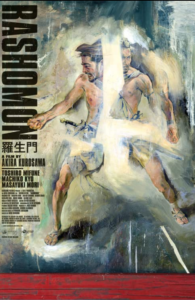
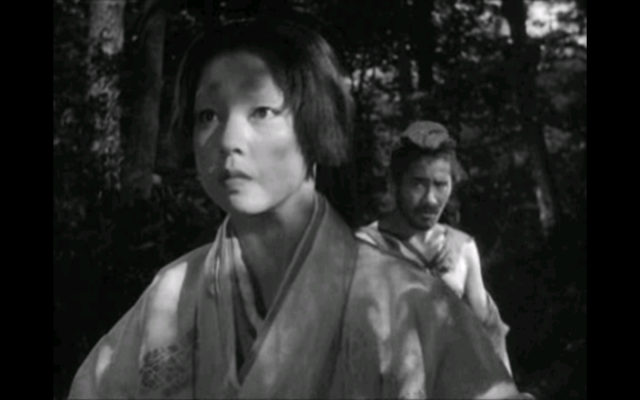
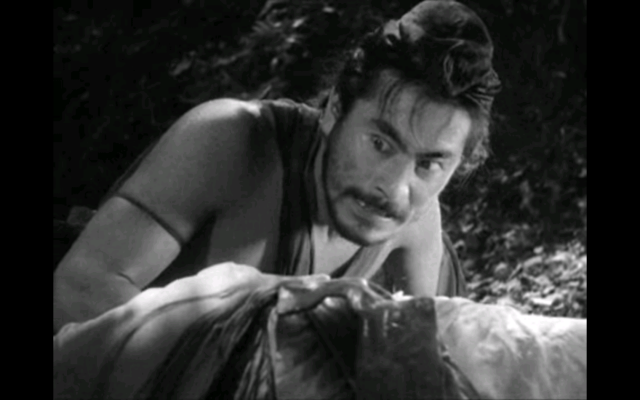
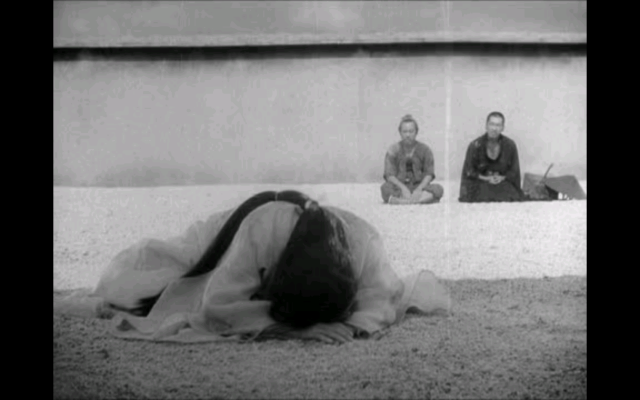
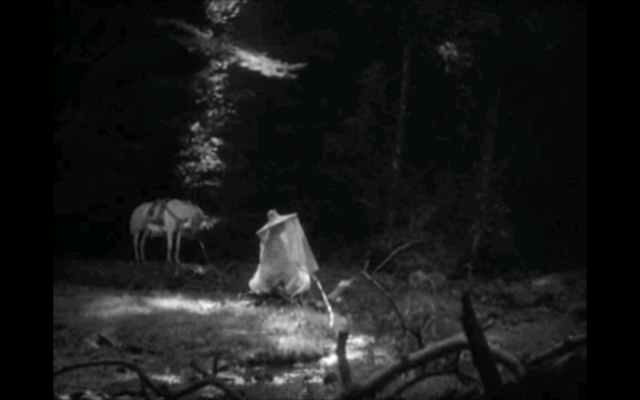
One thought on “Rashomon (1950)”
Yes, a must for all ffs.
That said…even though I have seen ‘Rashomon’ a number of times (as well as just now), it is not among my favorites of Kurosawa’s work. Why? Just that I don’t think it’s the kind of film one generally wants to return to for more. I seem to recall the impact of the film when I first saw it – and a first time with this film may be the most valuable one. It’s a rather simple, direct work – so going back to it later doesn’t seem to offer new insight.
That’s not to make less of the film. I just think that’s how it is with some movies; they have a strong statement to make and, when you re-watch them, they’re going to make that same statement without offering new riches.
Nevertheless, it’s an important Kurosawa film.
What I did notice this time around is that the performances by Mifune and Kyo (both more than competent, tho I prefer both of them a number of times elsewhere) seem to improve as the film goes along – but I think that has more to do with the gradual development of the script.
Mori has always been an actor who has had less impact overall on me. But I’m very impressed with him here – as well as Noriko Honma as the medium (through which Mori speaks – a stunning performance, actually).
Near the end of the film, Shimura makes the statement, “I don’t understand my soul.” That rather sums up the entire film for me.